A Day in the Life: Irish in Australia / Ireland
August 8, 2020
The invitation to write an article on “Irish in Australia/Ireland” evoked many memories around the generic involvement of the Irish in the Congregation as well as my own personal memories. On reading the stories of Saint Mary of the Cross MacKillop I learnt that there were Irish women among her first companions. One of the earliest was Rose Cunningham who joined Mary in Penola and went with her to Adelaide. Sadly, Rose’s life took a turn for the worse in 1918. She had been working as a governess in Penola. Over time, Rose showed signs of mental illness in the budding Institute. Eventually she had a complete breakdown, was admitted to a mental asylum where she spent 48 years before her death.
Ireland: The History of Newmarket
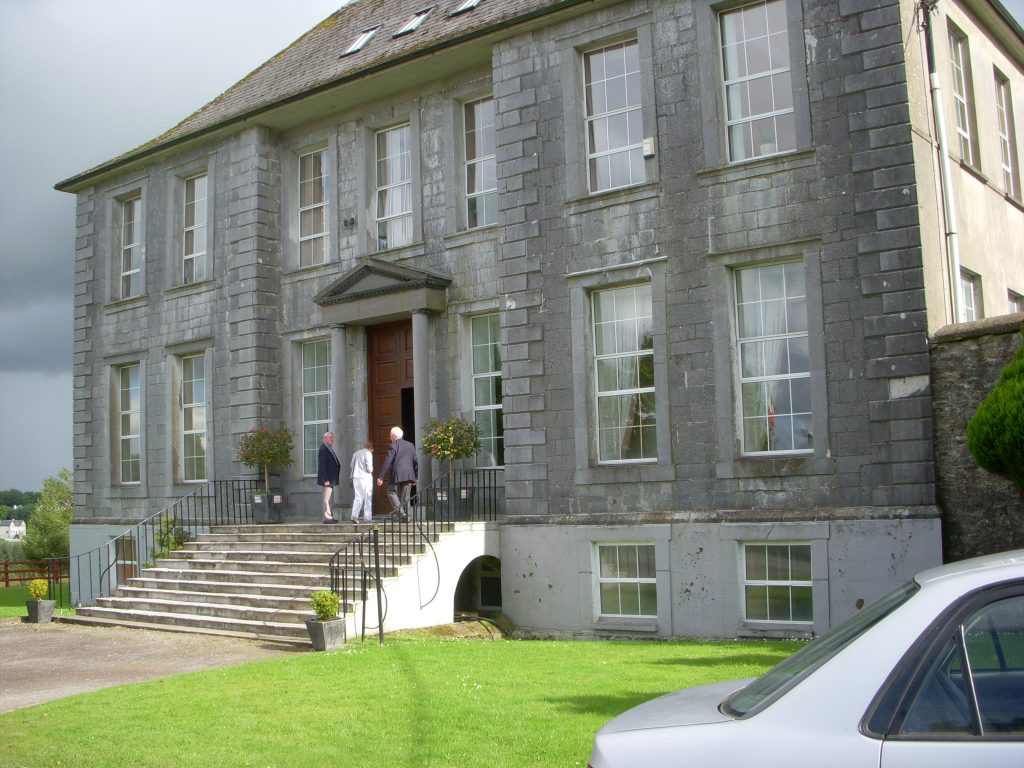
Teachings from a 295-Year-Old House on how to Survive a Pandemic.
As the coronavirus pandemic was invading our world, in came a request to write about the grand old Irish house, Newmarket Court in County Cork. Initially this felt rather strange but in researching the life of the 295-year-old house with a chequered history, some strategies for surviving in the new-normal, which is so abnormal, were revealed!
Reflection on Mary MacKillop
St Mary MacKillop’s Example.
 This year (2020), Australia will celebrate the tenth anniversay of the canonisation of St Mary MacKillop. Let us reflect on Mary MacKillop’s characteristics and the features of her courageous life that gave her sainthood.
This year (2020), Australia will celebrate the tenth anniversay of the canonisation of St Mary MacKillop. Let us reflect on Mary MacKillop’s characteristics and the features of her courageous life that gave her sainthood.
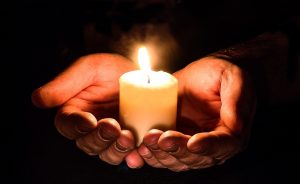 “Holiness, the heart of canonisation, consists in doing the will of God. That is why in those last years of paralysis in her wheelchair Mary was far from being a ‘retired saint’. She was a saint at her very best, because she was doing the will of God in most trying circumstances. It is not achievement that makes saints, it is holiness.” Paul Gardiner SJ 2010.
“Holiness, the heart of canonisation, consists in doing the will of God. That is why in those last years of paralysis in her wheelchair Mary was far from being a ‘retired saint’. She was a saint at her very best, because she was doing the will of God in most trying circumstances. It is not achievement that makes saints, it is holiness.” Paul Gardiner SJ 2010.
Consider:
- Mary endured many trials during her life. Take time to name for yourself what you believe enabled her to rise above these obstacles;
- What do you see as Mary’s saintly qualities that gave recognition to her as a saintly woman whom we recognize as a great example throughout the nation and indeed the world?
- How does Mary MacKillop’s example help us to endure the obstacles in our daily life?
Spend some time in quietness and prayer thanking God for your own and for God’s incredible care.
Michele Shipperley rsj
Candle image: Hands Open Candle by Myriams-Fotos obtained from Pixabay. Used with permission.
Saint Mary MacKillop Feast Day 2020
Greetings on the feast of Saint Mary MacKillop.
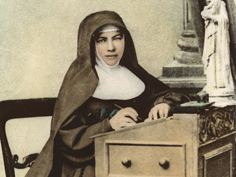
Celebrating the feast of Mary MacKillop in 2020 will be different for many of us. During these past months people across the world have been dealing with the reality and impact of the coronavirus. For many places where devotion to Saint Mary MacKillop has grown, this year’s celebration of her life will be different. With limited attendance in churches, the celebration of Eucharist for many will be through live stream. With pilgrimage sites not accessible for people, we need once again to draw upon our creativity and find different ways to mark this special day in the life of the church. What encouragement might Mary MacKillop offer us at this time in the life of the world. In 1907 she wrote to the Sisters:
Mary MacKillop is with us. Her own experience of life leads us to be in deep communion with her as we celebrate. We remember that Mary herself suffered from ill-health. She is close to all those whose health has been impacted by the COVID-19. She was close to death on a few occasions and found comfort in those who shared these times with her. She writes:
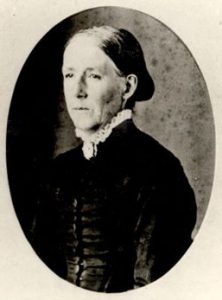
Mary MacKillop also knew the pain of loss and grief in her life. Mary felt deeply the loss of each member of her family. Perhaps her greatest loss was that of her mother Flora who was drowned in a shipwreck off the coast of Eden in New South Wales. At this time, she writes to her brother Donald:
For those who are losing their jobs and finding themselves unemployed, Mary MacKillop also knows what this experience is like. Her father was not able to hold down a permanent job leaving the family constantly on the move and placing extra stress on family life. It was this that caused Mary to find work at Sands and Kenny to support the family.
The opening prayer of the Liturgy for her feast says: “Holy God, source of all goodness, you show us in Mary MacKillop a woman of faith who lived by the power of the cross.” On this feast day let us be mindful that Mary MacKillop stands at the cross with us encouraging us to keep alive the flame of hope, bringing solace to those who have lost loved ones or employment, and comforting those whose lives have been changed for ever through the COVID-19 pandemic. For Mary MacKillop the Cross became the Tree of Life. Walking in and through the Cross she drew strength from the God who loved her. Mary MacKillop embraced the suffering in her life and shows us how to persevere in the face of adversity. We take to heart her message:
On this feast, ‘may we share in her courage, see with her vision, and love with her heart.’
May Mary MacKillop’s deep love for you be your gift this day.
Sr Monica Cavanagh
Congregational Leader
You’re invited to view a video titled ‘Celebrating the feast of Saint Mary MacKillop’ below:
Mass will be live streamed from the Mary MacKillop Memorial Chapel, North Sydney at 10:00am AEST on her feast day (Saturday 8 August 2020). Please find the link provided below:
Feast Day Mass live streamed from Mary MacKillop Memorial Chapel
Footnotes:
[1] Lesley O’Brien, Mary MacKillop Unveiled, p. 145
[2] Mary MacKillop 17 June 1886
Julian Tenison Woods: A Life – Chapters 15th & 16th
August 7, 2020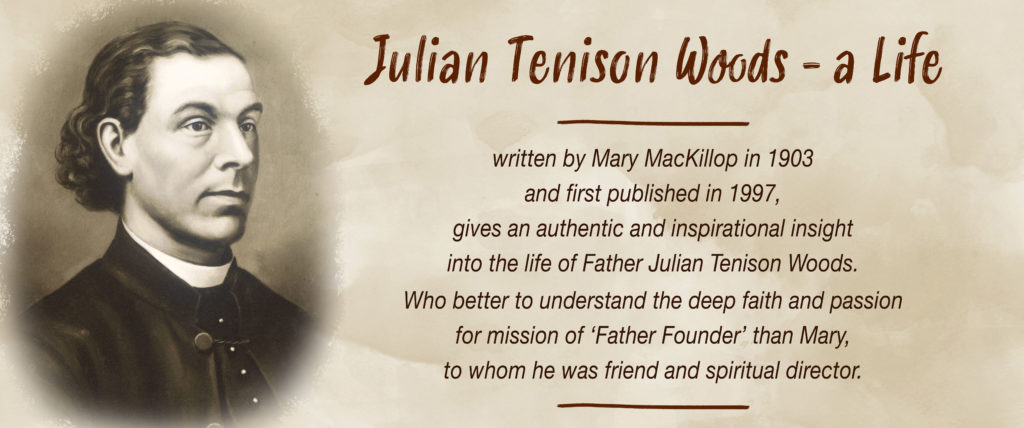
Chapters 15th and 16th
Father Woods returned to Penola as he had arranged. Great was the sorrow of his parishioners on hearing that he was certainly leaving after Christmas…[1]
Preparations had to be made for the expected visit of the Bishop and for the Confirmation, which had been delayed several years, owing to the prolonged absence of the late Bishop. Many adults were to be confirmed and Father Woods was kept busy at work, but as we have already seen, he considered it ‘a perfect luxury to have plenty to do.’…[2]
ethica and Fair Trade
Want to join us in making a positive mark on the planet?
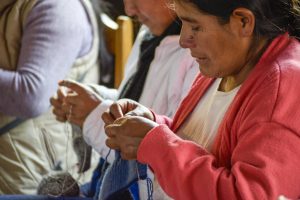 Fair Trade Fortnight takes place from 7 August to 20 August. It is based on a simple principle: we’re all connected. It is about people coming together to support farmers and workers around the world.
Fair Trade Fortnight takes place from 7 August to 20 August. It is based on a simple principle: we’re all connected. It is about people coming together to support farmers and workers around the world.
You can make a difference to people and planet by choosing to buy Fair Trade.
When someone asks me, ‘what is Fair Trade?’ my answer is simple: it is about trade and about being fair. It stands for improving livelihoods and supporting the development of artisans through trade, resulting in positive change in people’s lives.
Women in Peru, living in marginalised areas, have little or no opportunities for earning an income, but possess other skills: determination, ability and compassion.
Through the work with Ethica they have been able to achieve many milestones in their development, which has helped them, not only to receive an income, but has had a ripple effect with their families and communities
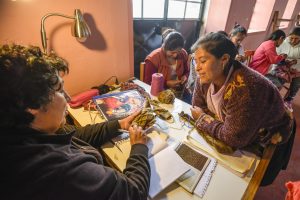 Today, they are facing one of their biggest challenges in Peru due to the pandemic and they need your help to keep their source of income. They love knitting all the amazing Ethica products for you, and it is thanks to this unique and fair source of income that they can have better food, send their children to school and pay for medicines.
Today, they are facing one of their biggest challenges in Peru due to the pandemic and they need your help to keep their source of income. They love knitting all the amazing Ethica products for you, and it is thanks to this unique and fair source of income that they can have better food, send their children to school and pay for medicines.
If they are to continue the progress they are making to achieve sustainable development, they need your immediate support. At Ethica we want to continue to create opportunities for their families and communities. They want to keep their source of income, to survive and thrive, and this is connected to your purchase of Ethica products.
We should, together support the artisans and choose to buy Fair Trade.
By purchasing an Ethica product:
 you are coming together and supporting the women who are struggling to feed their families in Peru;
you are coming together and supporting the women who are struggling to feed their families in Peru;- you are buying something beautiful;
- you are buying quality;
- you arehaving a positive impact;
- when you join us, you are investing in a more just world;
- you are investing in women and together we are supporting communities.
You can do something today – Please help.
Fair Trade means what you buy matters!
Make a difference today, go to www.ethica.org.au
Gina Bradley,
National Manager
ethica
Mary MacKillop Today Community Grants Program
August 6, 2020Community Grant Applications Open 10 August!

Mary MacKillop Today’s Community Grants Program seeks to empower people in need to build a better future for themselves and their communities. By participating in community led projects, individuals build skills and gain knowledge to engage with their local community and take advantage of life opportunities.
Applications for the 2021 Community Grants Program funding round open on 10 August and close on 14 September 2020.
Eligible organisations can apply for grants up to $10,000 AUD to deliver transformative projects that promote life-long learning for vulnerable Australians.
The Program began as a response to the ministries of the Sisters of Saint Joseph dedicated to helping vulnerable communities. In 2020, the Program awarded $150,000 in small grants to 15 recipients in urban, regional and remote communities.
The grants program creates positive change by supporting small, local organisations to assisting some of the most vulnerable groups in their communities, including homeless women, people living with disability, refugees and asylum seekers, to become more empowered to engage in broader society.
To find out more and to read the Community Grants Guidelines for 2021, please click the link below:
God Will Take Care of Us All: A Spirituality of Mary MacKillop
August 5, 2020Now an eBook!
An Australian! A saint for the universal Church!
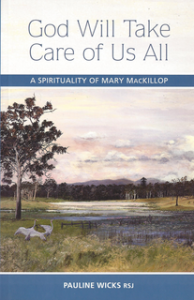 From her earliest years Mary MacKillop had learnt from her grandparents and parents that ‘God will take care of us all’. This deep trust in God’s loving care became fundamental to her spirituality.
From her earliest years Mary MacKillop had learnt from her grandparents and parents that ‘God will take care of us all’. This deep trust in God’s loving care became fundamental to her spirituality.
Her life as a pioneer Australian Christian provides for us today a model for living our Baptismal call. Her spirituality, which found expression in her heroic devotedness to her ‘good God’ and to the needy, is the subject of this book and is explored through her writings from 1860 to 1874.
Mary’s response to God’s grace enabled her to live by the will of God, to trust in the providence of a ‘good God’ and allow the cross to transform her life. Mary asks us, as she did her mother in September 1870, ‘do you try now in real earnest to be a saint?’
This new eBook is available through Amazon Kindle and Apple iBook.
Pauline Wicks rsj
